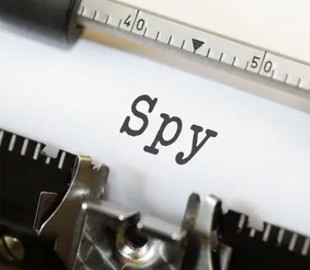
Objects in Britain, Poland, Latvia and Lithuania were set on fire
Intelligence representatives of the US and its allies monitor the increase in the number of “low-level” sabotage operations. in Europe, which they say are part of a Russian campaign to undermine support for Ukraine's military efforts. These covert operations mostly involve arson or attempted arson of a wide range of objects, including a warehouse in England, a paint factory in Poland, residential buildings in Latvia and, most surprisingly, an IKEA store in Lithuania. There are also those arrested who are suspected of being Russian operatives who planned attacks on American military bases.
"While these actions may appear random, U.S. and European security officials say they are part of a concerted effort by Russia to slow arms transfers to Kiev and create the appearance of growing European opposition to support for Ukraine. According to officials, this campaign is managed by the military intelligence of Russia – GRU»,– reports The New York Times.
Despite the fact that the attacks did not interrupt the flow of weapons to Ukraine and many of the targets are not directly related to the war, representatives of the security forces say that  ;Russia is trying to sow fear and force European countries to tighten security throughout the arms supply chain, which increases costs and slows the pace of supplies.
Amid growing concerns about sabotage, NATO ambassadors will meet with US Director of National Intelligence Avril Gaines next month. American and European security officials have said that Russia is being somewhat cautious in its sabotage efforts. She wants to draw attention to the mysterious fires, but not so much that she is directly blamed.
"Russia's strategy – it's a divide-and-conquer strategy. This is not a very expensive strategy for Russia at the moment because we are all reacting separately. That is why it is important that over time we collectivize the answer», – said former US intelligence official Andrea Kendall-Taylor, who is now a senior fellow at the Center for a New American Security.
One of the first recent acts of sabotage attributed to Russia was a warehouse fire in London in March. Authorities say the warehouse was linked to supplies to Ukraine, but have provided few details. Security officials briefed on the incident said GRU operatives used a Russian diplomatic building in Sussex, England, to recruit locals to carry out the arson. Four Britons were charged with setting the building on fire, and one of them – in aiding foreign intelligence.
In response, Britain expelled a Russian serviceman who worked for the intelligence services and closed several Russian diplomatic buildings, including the GRU operational center in Sussex.
The use of locals, according to security officials, was a feature of the recent sabotage campaign. U.S. and European officials said this was done in part to make the attacks harder to detect and to give the impression that they were the result of domestic opposition to support for Ukraine.
Russian sabotage in Europe is nothing new. In 2014, Russian military intelligence blew up an ammunition depot in the Czech Republic, although the country did not publicly accuse Russia until seven years later.
According to Max Bergman, director of the Europe, Russia, and Eurasia Program at the Center for Strategic and International Studies, the expulsion of Russian spies from Europe in 2018 and after 2022 sharply limited Russia's ability to carry out attacks.
«There have been many undermining of Russian intelligence activities in Europe. This caused a pause, and Russian intelligence was absorbed by the war in Ukraine. Now they are back and are probably trying to regain their positions», – believes Bergmann.

